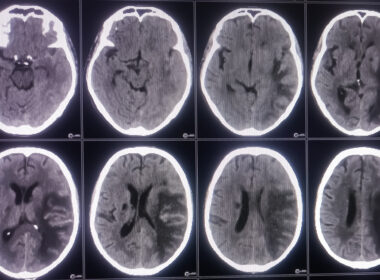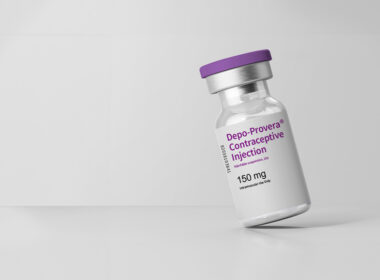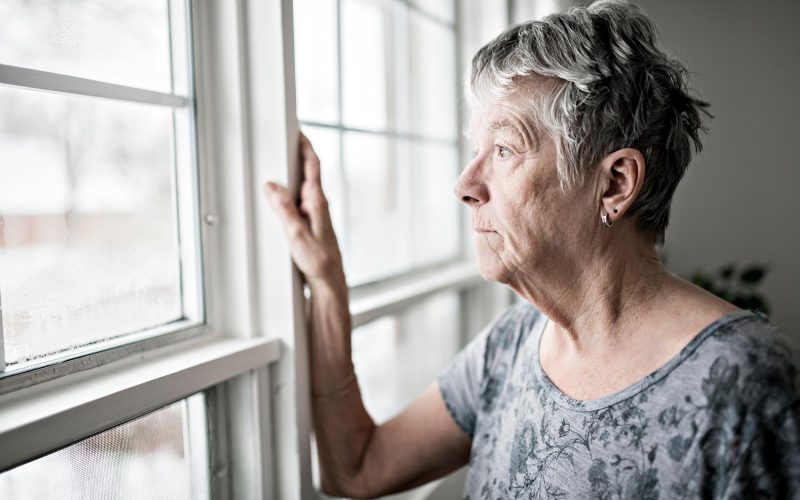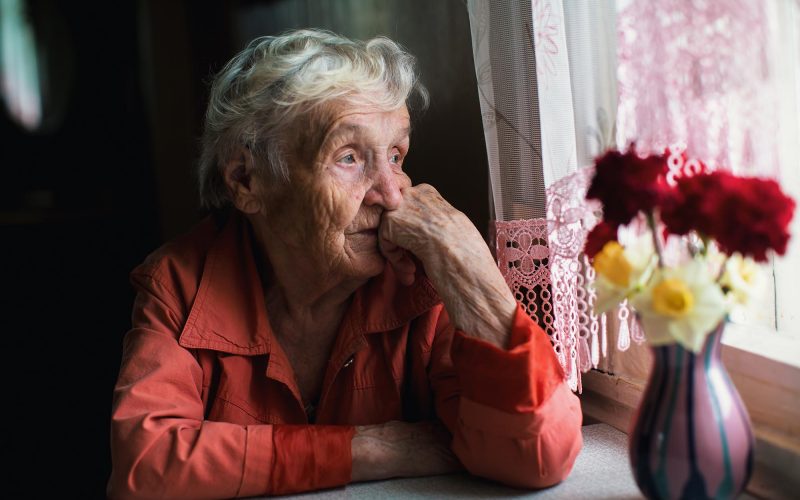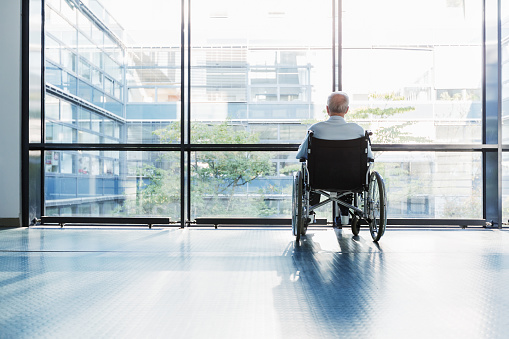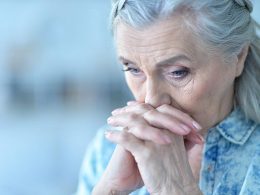Aging is a blessing. You get to see your kids grow up, and experience the joy of watching your grandchildren run around the house during Thanksgiving.
As fulfilling as it sounds, old age isn’t always a walk in the park. Sometimes, it comes with a handful of “peculiar” issues, especially when you relocate to a nursing home.
The simultaneous loss of independence, a long-time home, an established routine, and cherished friends is quite challenging. As you observe your new environment, you realize that nothing is familiar. You feel abandoned, and a sense of loneliness creeps in—the latter being a primary symptom of depression.
Research and several tests by psychiatrists show that depression affects nursing home residents 11 to 78% more than seniors in the community.
Does this mean that nursing homes are not safe for our old folks? Why are depression cases on the rise in care facilities?
This blog post contains all you need to know about nursing home depression, including the treatments and prevention.
Depression as a Prevalent Health Issue Among Adults
According to a report from the Centers for Disease Control (CDC),
✦ 1 in 5 American adults has experienced a Mental Health issue
✦ 36.4% to 41.5% of adults suffer from anxiety or depressive disorder
✦ Late-life depression affects about 7 million Americans ages 65 and older
Instead of allowing these figures to scare or frighten us, they should serve as a wake-up call to attend to our mental health.
The rigors of securing good education, work-life balance, family issues, numerous heartbreaks, toxic social media, and other stressful experiences can predispose the older generation to depression. It’s a vicious circle we need to escape from.
Amidst all this, we still pay little or no attention to our emotional well-being, depriving ourselves of the quality of life we deserve.
“Health is wealth,” they say, but it’s quite ironic since our mental health is the least considered aspect of our well-being.
We call our doctors at the slightest discomfort, fair enough, but only because we feel physical pain. At the same time, we’re reluctant to seek help when we have depressed moods, sleep disturbances, or sudden changes in appetite. This nonchalant attitude to our emotional well-being is wrong and may cost us down the road.
You must know that depression seldom happens overnight; rather, it’s a gradual process that we, sadly, disregard. Reports show that depression is more common in older adults because of this indifference; we ignore the signs early on and succumb to it at the final stages of our lives.
Those who happen to spend those latter stages in a long-term care facility have a greater risk of depression. Read on, the following subheadings will show you why.
Depression in Nursing Homes
Depression is a medical condition that rids you of a sound mind, affects your mood, and reduces your ability to function. It is a common medical disorder that affects many people regardless of age, race, religion, or socioeconomic status.
Nursing home depression or geriatric depression is a psychological disorder affecting older adults in long-term care facilities. This disorder is caused by biological, social, and psychological factors and can reduce their quality of life.
Admission to residential care is a massive change in an older person’s life that can upset their mental state. It’s never easy for seniors to adjust to this next chapter, perhaps the last, in their lives.
Imagine being told you’re moving to a new home only to be surrounded by new faces and different people responsible for your personal needs. Realizing that you’ll not see your loved ones as often as you want is also tough.
Even teenagers get emotional when they’re leaving home for college.
A vast majority of residents resign to fate and tend to slump into depression, where caregivers have a huge role to play. Since we know, new residents are at greater risk of depression, combating it early on will give them a fighting chance.
How do the Elderly Feel About Living in a Nursing Home?
When elderly persons relocate to nursing homes, they might feel alone and abandoned. Since these residents now have little or no access to their social network, they have a high risk of depression.
A recent cross-sectional study showed that the rate of pain and depression among nursing home residents were 46.0% and 20.7%, respectively. When asked why, many participants admitted they felt extra lonely because “there were few people to talk to in the first few months”.
In another survey about life in nursing homes, researchers asked selected residents a series of questions.
Using their answers, the interviewers made the following deductions:
The lack of interaction was discomforting
There were few residents to relate with, as most had some form of cognitive impairment. Also, communication with staff members was an issue they struggled with as new residents.
Health issues caused sadness
They were unhappy because they battled with health problems and impairments that caused pain and discomfort.
Dependence and lack of agency
Depending on their caregivers for personal hygiene made them uncomfortable until they got used to the process.
“I am often sad because I have to wear diapers and need help to use the bathroom. But I don’t like it when my diapers are wet and I’m completely dependent on care.” (Woman)
Acceptance made life easier
Participating residents shared that they felt better when they accepted their new environment and embraced living circumstances. They got used to being assisted with their hygiene and appreciated the caregivers.
Social interaction made them feel less alone
After some time, these residents made friends, and things became surprisingly exciting as they shared their life experiences. They also felt more comfortable because communication with their caregivers got easier with each day spent in the nursing home.
The plight of older adults in residential care is quite understandable. Like a fish out of water, you find yourself in unfamiliar territory. The nursing home is a whole new world filled with strange faces, a world where you’re deprived of any personal space.
After hours of researching, we’ve discovered that, at first, residents aren’t pleased to be in a nursing home. However, given enough time and care, they can lead happy lives. Especially when caregivers make conscious efforts to make the facility a home for every resident.
What’s the Average Life Expectancy of a Person in a Nursing Home?
According to a recent study conducted by researchers at the San Francisco VA Medical Center and the University of California, San Francisco, 65% of elderly Americans who moved to a nursing home died within one year. (You can find the comprehensive details in the online Early View section of the “Journal of the American Geriatrics Society.”)
The National Institute on Aging also conducted a Health and Retirement Study to determine the average life expectancy of people in nursing homes. The study featured 1,817 nursing home residents who died between 1992 and 2006. After the study, the recorded average life expectancy was 13.7 months.
What are the Risk Factors for Depression in Nursing Homes?
The risk factors are things that may trigger depression. For instance, studies have shown that the change in environment may trigger depression in some seniors. Others may experience depression because of changes in the brain. At times, a significant event like the loss of a loved one or a medical diagnosis may spark depressive symptoms.
These predictive factors are not necessarily the causes, but extensive research has linked them to depression:
Nursing home abuse
Abuse is the action or inaction of a caregiver which harms an older adult. Depression—a psychological indicator of physical, emotional, financial, or sexual abuse—must be discovered and addressed immediately.
Caregiver abuse, intentional or by mistake, can cause pain, injury, and impairment to an older adult. If elder abuse is unchecked, abusive caregivers will continue to turn old age into a nightmare for the aging population.
Reach out to us today for a free consultation if you suspect that a caregiver has abused your loved one into depression. We have reliable elder abuse attorneys to help you get justice.
Genetics
This is another major cause of depression, and statistics show that 40% of people suffering from depression inherit the disorder.
Psychological factors
Major traumatic events in a resident’s life, like the loss of a family member or friend or financial misfortune, can trigger depression. Childhood experiences (including emotional abuse, neglect, and family issues) notably increase the risk of depression later in life.
Environmental factors
Regrettable experiences or stressful life events like changes in location or social setting can also cause depression in older adults.
Health issues
Health issues can lead to what is commonly called “subclinical depression.” This form of depression is caused by the presence of an illness or a terminal medical condition like stroke or cancer. It’s not terminal itself, as the quality of life of a depressed resident improves with time when the underlying illness is treated.
Hearing loss is also associated with nursing home depression. The inability to communicate effectively causes social isolation and loneliness in adults.
Medication
An older adult’s intake of prescription and nonprescription medications may also increase the risk of depression. Some drugs, when used for long, have adverse side effects.
Low levels of essential neurotransmitter chemicals in the brain (such as serotonin and norepinephrine) can also make a resident depressed.
Other common factors that raise the risk of depression in seniors include:
- Stress
- Disability
- Overthinking
- Stigmatization
- Social isolation and loneliness
- Sleep problems like insomnia
- Lack of exercise or physical activity
- Physical or mental impairment
- Shame from lack of independence
- Addiction and substance abuse at an early age
Since we’ve examined the common triggers of depression in nursing homes, let’s learn how to identify the menace.
Identifying Depression in Nursing Homes: Forms and Symptoms
A primary care doctor can check for depression using a series of standard questions, allowing for better diagnosis and treatment. The Geriatric Depression Scale (GDS), a popular method of depression recognition, is a 30-item self-report assessment used to identify depression in the elderly. The scale comprises several “yes” or “no” questions studied to make a diagnosis.
After answering the questions, the cumulative score determines if a resident has depression or not. A senior who scores 0-9 is considered “normal”; 10-19 is “mildly depressed”; and 20-30 is “severely depressed.”
Although the GDS is reliable, it shouldn’t be the only basis for diagnosis. A clinical diagnosis or lab test is still necessary.
Forms of Depression
The rate of probable/definite major depression and minor depression in nursing home residents is 14.4% and 16.8%, respectively.
According to the Diagnostic and Statistical Manual of Mental Disorders, 4th edition (Text Revision; DSM-IV-TR), the common forms of depression are major depressive disorder and psychotic disorder.
Major depressive disorder (MDD)
Also known as clinical depression, is a severe mental disorder that causes sufferers to stay away from others, have continuous low moods, and show disinterest in activities they used to enjoy.
Here’s how you can detect major depressive disorder in older adults:
- Appetite changes with significant weight loss or weight gain
- Insomnia (not sleeping enough) or hypersomnia (oversleeping)
- Psychomotor changes, such as agitation or slow, lazy movements
- Low energy or fatigue
- Poor concentration or decision making
- Residents might feel worthlessness or guilt
- Suicidal thoughts, ideas, or plans
- Homicidal thoughts
- The resident is moody for most of the day, almost every day
- Disinterest in activities they used to enjoy, like hobbies
Note: The DSM-IV-TR criteria state that a nursing home resident is diagnosed with depression only when they exhibit five or more of the above symptoms for two weeks.
Psychotic Disorder
In severe (episodic) cases of depression, individuals may have psychotic symptoms. These symptoms include delusions and hallucinations, which are usually unpleasant and violent.
Depression is a subtle and silent illness capable of killing an individual if they don’t get treated. It’s often hard to spot but can manifest when sufferers show specific behavioral changes.
Signs and Symptoms of Depression in Nursing Homes
Below is a list of common outward expressions of depression in nursing homes; however, some symptoms may not be on this list:
- Boredom
- Long, deep sighs
- Low self-esteem
- Talking to oneself
- Decreased energy or fatigue
- Sudden weight gain or loss from eating too much or too little
- Irritability, restlessness, or having trouble sitting still
- Difficulty in moving or talking
- Difficulty concentrating, remembering, or making decisions
- Difficulty sleeping or oversleeping
A depressed person may also report physical symptoms such as fatigue, headaches, or digestive problems. The World Health Organization’s criteria for depression states that depression has physical symptoms which are most common in developing countries.
Before we discuss the treatment of depression, we look at the effects of depression in older adults.
How Threatening are the Effects of Depression in Nursing Homes?
Late-life depression has far more severe consequences than depression at any other age. Depression in seniors is usually accompanied by medical problems such as functional and cognitive decline, disability, heart disease, and mental illness like dementia.
Depressed residents may be overwhelmed with negative thoughts and feelings. Other effects include poor concentration and memory, withdrawal from social situations and activities, irritability, and suicidal thoughts.
Depression also disrupts the circadian rhythm— the internal body clock that regulates your biological activities, including sleeping and waking. A depressed person might find it hard to sleep only to wake up early and may even sleep more than usual.
In essence, depression is not a respecter of persons and can affect both residents and caregivers. Whoever is affected must seek help fast; otherwise, the symptoms will degenerate into bipolar disorder, ADHD, hallucinations, and worse things like self-harm or suicide.
Can you get Depressed From Working in a Nursing Home?
Yes, nursing home staff can get depressed as well. Burnout Syndrome is a minor depression caused by physical and mental exhaustion from increased workloads and personal demands.
This weariness results from an unfavorable work environment, short-staffing or low nurse-patient ratios, and a lack of resources.
According to a report from the Centers for Disease Control (CDC), 91.1% of 232 interviewed nurses admitted having a high rate of emotional exhaustion.
Short-staffing is a prevalent problem faced by nursing homes, as working long hours can lead to emotional fatigue and disinterest in work. When staff members can’t function adequately, residents may end up neglected (a form of nursing home abuse).
An unhealthy work environment can negatively affect staff members mental health, which might impact the resident’s overall well-being. An unhappy caregiver can never nurse a depressed resident to good health; the resident’s health status will only worsen.
The systematic review and meta-analysis of a recent study also show a strong connection between caregiver depression and resident depression. Just as we know that happiness and laughter are infectious, sadness can also rub off on others.
As depression threatens our daily living, the question now becomes, “how do we escape depression?”
Depression Management in Nursing Homes
Treating depression in older adults involves using adequate mental health interventions, a mixture of both pharmaceutical and therapeutic methods.
The three common ways to treat depression include:
Psychotherapy
Psychotherapy consists of interventions such as therapy, staff training on the best ways to care for depressed residents, recreation, and rehabilitation activities. It can help individuals identify and change disturbing emotions, thoughts, and behavior.
This therapeutic approach is made by a psychologist, licensed clinical social worker (LCSW), psychiatrist, or other licensed mental practitioners.
Medication 
Depression medications may balance chemicals like serotonin that influence mood. Antidepressant drugs that are frequently prescribed come in a wide variety, and selective serotonin reuptake inhibitors (SSRIs) are the most common.
Residents with diagnosed depression shouldn’t be treated using only drugs, although effective, doctors should employ psychosocial options, as well.
Electroconvulsive Therapy (ECT)
This method of depression care involves the use of electrodes placed on a person’s head to allow a safe amount of electric current to travel through the brain. This type of therapy is usually considered when other treatments have failed to improve a person’s ailment.
Doctors use this treatment method to treat persons with severe depression.
Why Depression in Nursing Homes is Often Missed
Depressive symptoms in older adults aren’t always similar to those of younger people. Only half of depressed older adults report similar symptoms that match the DSM-IV-TR criteria.
Seniors ignore apparent signs like sadness and low energy, linking them to old age. Instead, they report dysthymia (hopelessness), anxiety, or subclinical depression.
Sometimes, older adults fail to report depression because they feel there is nothing to live for. Residents don’t see the need for treatment because they feel stuck in the facility. Many older persons are also reluctant to divulge their problems because they think it makes them look weak.
Additionally, the stigma attached to mental disorders and psychiatric treatments contributes to denial among seniors.
In addition, 40 to 50% of persons 85 years and older have dementia symptoms. Since depression and dementia are both diagnoses in geriatric psychiatry, similar symptoms make them difficult to diagnose. This similarity makes it hard to treat depression as you could mistake its symptoms for dementia and vice versa.
Cultural factors can also affect an adult’s depression symptoms and willingness to seek treatment.
Since medical personnel can only treat depression when reported or properly diagnosed, we must find a way around these barriers.
Overcoming Depression in Nursing Homes
Aside from the three forms of depression treatment, there are other activities residents and caregivers can engage in to feel better and improve the quality of life for all involved. Residents, caregivers, long-term care facilities, family members, and the government have specific roles to play in ending depression in nursing homes.
What steps can seniors take?
Residents should:
- Engage in physical activities like regular walks, strolls, and exercise.
- Eat a healthy and balanced diet. The low-sodium DASH diet, for instance, reduces the risk of depression.
- Have a healthy relationship with their loved ones.
- Talk to their doctor the moment they notice depression symptoms.
- Sleep for 7-9 hours each night.
Nursing home staff have a huge part to play
Nursing home staff can help new residents get through the transition period in several ways:
Encourage social interactions.
With the right mindset, nursing homes can become another socialization medium where residents meet new people with similar interests. Interactions can foster new connections and build friendships from scratch when seniors mingle with other residents.
Staff should introduce residents to their new neighbors and make, not force, them to participate in group events. Participation fosters a sense of belonging, making them much more comfortable.
Personalize resident space
“I had my granddaughter bring my art, my desk, my computers, my rocks and crystals, posters, and everything that I had in my bedroom and study, except the furniture. We decorated and moved things around until my room looked like just another room in my house.
Now I am truly at home. I love my room and it just feels like an extension of my house.”
~Lorie
Like Lorie, you can help older adults set up their new homes to their preferred taste. Adding a few personal touches to the room won’t hurt, provided it doesn’t make other residents uncomfortable. That way, they’ll have memories of their loved ones and quickly feel at home.
Encourage exercise
As a form of therapy, depressed nursing home residents should exercise; even walking has therapeutic effects. Meta-analysis shows that physical exercise is a helpful alternative for seniors with clinical and non-clinical depression.
Residents not battling depression should also be encouraged to exercise at least once a week to stay healthy. Those who can’t exercise because of physical impairment can still go outside and enjoy the weather and scenery.
Be Patient
Since no two persons are the same, the recovery rate of individuals may vary. It’s important to give those who aren’t coming around enough time to settle down.
Caregivers should bring out the caring, compassionate attitude they’re known for as it’s usually the healing touch needed to get depressed residents back to their usual selves.
The role of nursing homes
Nursing facilities must provide enough mental health options above the minimum standards of care. Nursing homes must have at least one qualified social worker (QSW) who works part-time. Also, they must meet up with the required nurse-bed ratio.
When nursing facilities invite their doctors to treat a chronic illness or for a wellness visit, they should be encouraged to conduct up to detect depression.
Most importantly, facilities must employ enough nursing staff competent enough to provide nursing and care-related services to achieve the highest level of mental well-being for each resident.
The role of family members
Relatives are not left out. They should visit often, especially in the first few months of admission. Relations should keep their old folks informed of how things are going in their absence. That way, they still feel connected.
Most importantly, family members must learn more about the facility’s mental health policies and the rights of the elderly in nursing homes.
Government can help as well
The Netherlands tops the list of countries that use appropriate standards to operate their care facilities. The country has a 3.7% GDP dedicated to long-term care provision. They’re also the only country where nursing home medicine is a specific medical discipline.
The government ensures Dutch citizens pay the same basic premium to cover primary healthcare, regardless of income and care needs. Consequently, there’s been a significant drop in mental disorders, particularly depression, across the country and in dutch nursing homes because of an improved eldercare system.
Other countries can learn from the Dutch’s decision to implement better eldercare systems for their seniors.
Who Can Care for Depressed Nursing Home Residents?
Geriatric psychiatrists and nurses are practitioners trained to take care of elderly persons. They are the only people allowed to diagnose depression and give appropriate treatment.
These professionals diagnose depressive disorders using various criteria found in the American Psychiatric Association’s Diagnostic and Statistical Manual of Mental Disorders (DSM) and the World Health Organization’s International Statistical Classification of Diseases and Related Health Problems (ICD).
Sadly, specialist mental health services aren’t always available, so a large part of depression management is left to caregivers and nursing home staff.
Authorities that Combat Depression in Nursing Homes
While some of these bodies are government-operated, others are international peer-reviewed journals that contain a variety of scholarly articles of research and studies:
American Psychiatric Association
These psychiatrists work together to ensure that persons with illnesses get the best care and treatment possible.
World Health Organization
The main objective of the WHO is to uncover “the attainment by all peoples of the highest possible level of health”.
The International Journal of Geriatric Psychiatry
The j geriatric psychiatry contains original research of mental disorders affecting the elderly, including the causes and treatment. This American Journal concerns researchers, psychiatrists, psychologists, social workers, nurses, and other therapeutic practitioners.
The International Journal of Psychiatry in Medicine (IJPM)
The int j psychiatry med journal deals with applied sciences and bridges the gap between clinical psychiatry research and primary care clinical research.
The Medical Director Association
This association consists of medical directors, attending physicians, nurses, and other therapeutic professionals. They also have a med dir assoc journal.
Final Words
Depression is a multifaceted issue with underlying causes at individual and societal levels. Sadly, depression in nursing homes has been under-recognized and inadequately treated.
Hence, our caregivers need to know how to identify depressive symptoms in residents and provide person-centered care. We must also adopt far more focused, specialized, and integrated therapy systems for those who face depression—coupled with campaigns to reduce nursing home depression to minimal levels.



